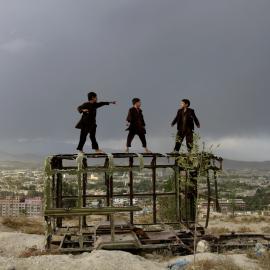To the Editor:
Kathy Gannon accurately describes the threat to human rights and security posed by the warlords in Afghanistan ("Afghanistan Unbound," May/June 2004). But she fails to recognize the reason why both Washington and the Canadian-led NATO security assistance force currently in Afghanistan are cooperating with them: both parties realize that it is vital that the warlords not become spoilers of the peace process.
Some of the warlords have already been cajoled or coerced by Kabul and its supporters into throwing their lot in with the central government. Their cooperation helps give Hamid Karzai whatever legitimacy he has in the provinces. If the new central government leaders and their international supporters were to refuse to work with recalcitrant regional and ethnic leaders -- who command private armies and in many cases large economic fiefdoms -- these warlords would lose any remaining incentive to cooperate with Kabul. At that point, the stage could be set for a Taliban (and al Qaeda) resurgence.
There is no question that it is dangerous to buy warlord support with weapons or other questionable favors. Instead, the United States needs to permanently co-opt them, so their long-term interests are tied to the success of a stable central government. That means finding some ways of generalizing the reward structure, to overcome the current pattern of tailored deals with each individual warlord. The NATO peace mission, along with the United States, is working with Karzai to figure out how best to do this. Promising initiatives already under way include attempts to persuade warlords that entering electoral politics is a legitimate way of maintaining their power base. Efforts have also been made to convince warlords to go into legitimate business, by giving them the necessary training and start-up funds.
The most important thing is to allow these former leaders to save face among their supporters. An additional way of doing this might be to turn the warlords into partners in a national infrastructure development plan, encouraging them to trade their cooperation for shares in projects designed to boost nationwide and cross-border trade. If the ability to hand out attractive local favors becomes dependent on the smooth functioning of national highways, electrical grid systems, or even a railroad (something Afghanistan currently lacks), then the warlords will have every reason to cooperate with each other and support the central authorities.
KIMBERLY ZISK MARTEN
Associate Professor, Barnard College, Columbia University
